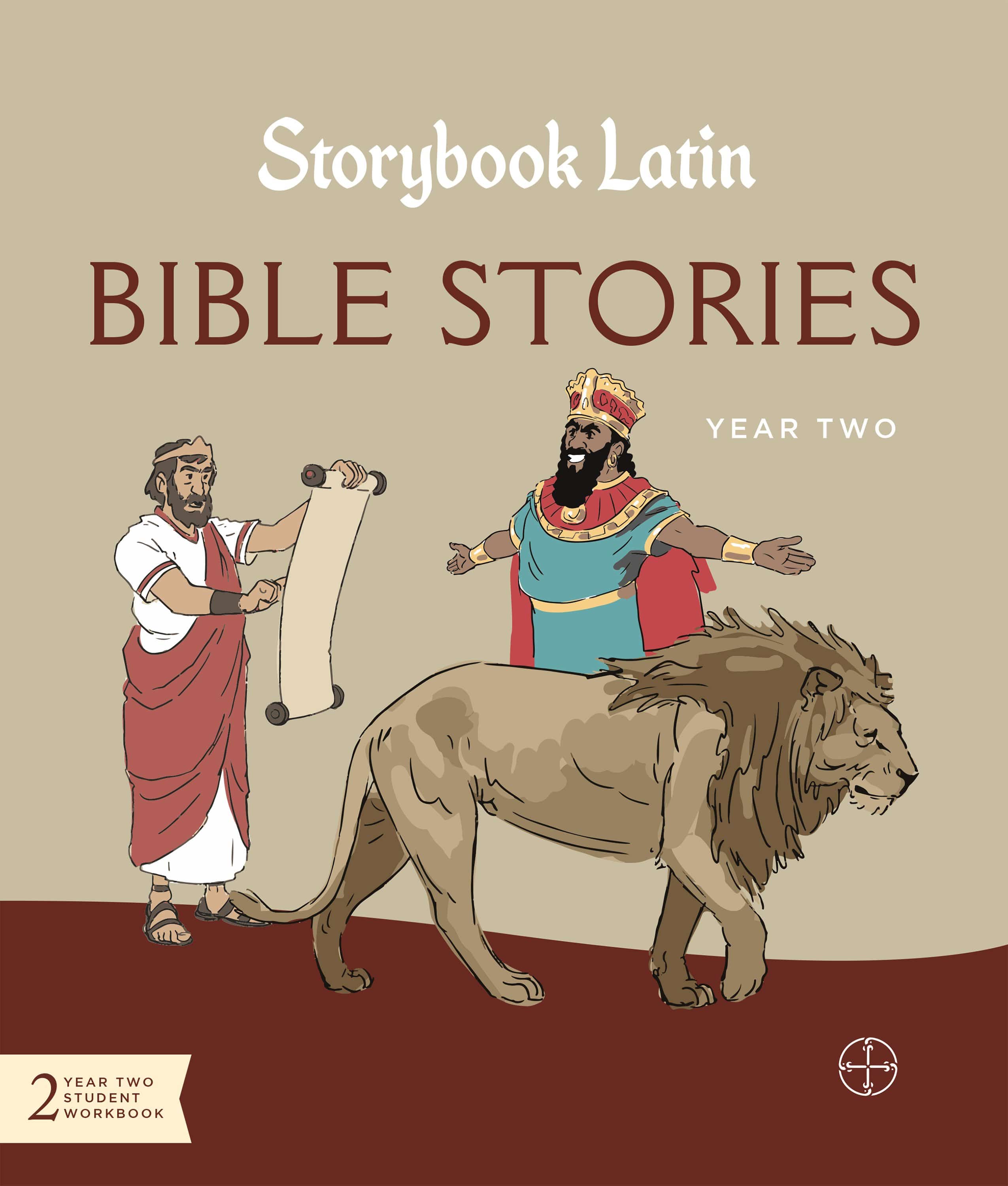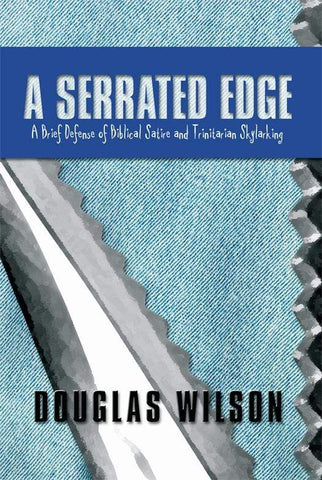-


- Back
- Back
-
Back
Homeschool Bundles
Bible
History
Literature
Math
Latin
Science
Resources
Video
Canon Press Gift Card

Latin through pictures, stories, conversations.
Learn More

In this book, Douglas Wilson combines G.K. Chesterton-like prose with the Apostles' Creed, and explains such doctrines as the Trinity, creation, fall, salvation, Scripture, and the church with clarity and imagination. Rather than seeing fundamentalist doctrines as a narrow and confining straightjacket, Wilson sees them as the only way for people to find true freedom and joy. …

In this book, Douglas Wilson combines G.K. Chesterton-like prose with the Apostles' Creed, and explains such doctrines as the Trinity, creation, fall, salvation, Scripture, and the church with clarity and imagination. Rather than seeing fundamentalist doctrines as a narrow and confining straightjacket, Wilson sees them as the only way for people to find true freedom and joy.

If the Church is to rise up full of people who don't give a damn about the fleeting pleasures of this life and who care only for the glory of Jesus and His Kingdom, we must once again grasp what made Jesus so eminently killable. If Jesus had been born in our day, the council that condemned Him would have included a couple of well-known evangelical pastors, a few outspoken pro-life leaders, a conservative-libertarian-leaning politician, and at least one Bible-thumping fundamentalist. Jesus was murdered by church people, for churchy reasons. In
Blood-Bought World
, Toby J. Sumpter pinpoints the raw spots where modern-day Christians have allowed respectability, comfort, fear, love, fitness, authenticity, or other idols to become "fig leaves" to shield us from the Persons of the Trinity. We have relegated God to Sunday school presentations instead of following Jesus on the path to real authority and power: the cross. God's undiluted sovereignty demolishes every false human claim of autonomy. Men and women who know Jesus have no patience for a polite social club with religious jargon. The real Christian faith, delivered to God's people and driven by the Holy Spirit, is a wild, rambunctious, healing force set on the redemption of the world. That is what "being Christian" means.

Satire is a kind of preaching. Satire pervades Scripture. Satire treats the foibles of sinners with a less than perfect tenderness. But if a Christian employs satire today, he is almost immediately called to account for his "insensitive" and "unloving" behavior. But is the Golden Rule really "be nice"? Actually, Scripture shows that the central point of some religious controversies is to give offense. When Christ was confronted with ecclesiastical obstinacy and other forms of arrogance, He showed us a godly pattern for giving offense.
In every controversy godliness and wisdom (or the lack of them) are to be determined by careful appeal to the Scriptures and not the fact of people having taken offense. In this book, veteran satirist Douglas Wilson explains his rationale for why so much of what he says gets people upset and yet he continues to speak as he does, and why you should (sometimes) too for the sake of the Gospel.

It is no secret that our world desperately needs change. Politicians know this and use it to collect votes. Journalists exploit it to sell newspapers and magazines. Advertisers, to sell everything else. Each of these groups (and countless others) spend their lives working to convince others that they hold the key to a better country, a better life, a better future.
But what exactly is this change we all long for? And how can it ever come about? A Primer on Worship and Reformation proposes that true change begins, not with a process or an idea, but through faithful worship. To witness true global change—true reformation—we must first pray the Lord that we would see worship at the center of life. The truth is that when the Word is faithfully preached, even the gates of hell tremble. When the Psalms are sung, the meek inherit the earth. When the church celebrates at the Lord's Table, those who mourn are comforted.
If we learn these lessons and believe them to be true, we will find that through renewed worship God brings change to every facet of our lives.

In Against the Church , longtime pastor Douglas Wilson takes a hammer to some of our very favorite graven images, and (surprise, surprise) we've set up display cases for most of them in our churches: Liturgy, Tradition, Systematics, infant Baptism, and that crafty old Baal Doctrine.
Alongside a critique of philosophical assumptions about human nature, dualism, and grace, Wilson stresses the unavoidable and absolute necessity of individual hearts being born again. He concludes by laying out the case for the church. This isn't contradictory, though—the only way to be effectually for the church is to master the case against it. After all, God Himself is the ultimate iconoclast.

In this book, Douglas Wilson combines G.K. Chesterton-like prose with the Apostles' Creed, and explains such doctrines as the Trinity, creation, fall, salvation, Scripture, and the church with clarity and imagination. Rather than …

In this book, Douglas Wilson combines G.K. Chesterton-like prose with the Apostles' Creed, and explains such doctrines as the Trinity, creation, fall, salvation, Scripture, and the church with clarity and imagination. Rather than seeing fundamentalist doctrines as a narrow and confining straightjacket, Wilson sees them as the only way for people to find true freedom and joy.

If the Church is to rise up full of people who don't give a damn about the fleeting pleasures of this life and who care only for the glory of Jesus and His Kingdom, we must once again grasp what made Jesus so eminently killable. If Jesus had been born in our day, the council that condemned Him would have included a couple of well-known evangelical pastors, a few outspoken pro-life leaders, a conservative-libertarian-leaning politician, and at least one Bible-thumping fundamentalist. Jesus was murdered by church people, for churchy reasons. In
Blood-Bought World
, Toby J. Sumpter pinpoints the raw spots where modern-day Christians have allowed respectability, comfort, fear, love, fitness, authenticity, or other idols to become "fig leaves" to shield us from the Persons of the Trinity. We have relegated God to Sunday school presentations instead of following Jesus on the path to real authority and power: the cross. God's undiluted sovereignty demolishes every false human claim of autonomy. Men and women who know Jesus have no patience for a polite social club with religious jargon. The real Christian faith, delivered to God's people and driven by the Holy Spirit, is a wild, rambunctious, healing force set on the redemption of the world. That is what "being Christian" means.

Satire is a kind of preaching. Satire pervades Scripture. Satire treats the foibles of sinners with a less than perfect tenderness. But if a Christian employs satire today, he is almost immediately called to account for his "insensitive" and "unloving" behavior. But is the Golden Rule really "be nice"? Actually, Scripture shows that the central point of some religious controversies is to give offense. When Christ was confronted with ecclesiastical obstinacy and other forms of arrogance, He showed us a godly pattern for giving offense.
In every controversy godliness and wisdom (or the lack of them) are to be determined by careful appeal to the Scriptures and not the fact of people having taken offense. In this book, veteran satirist Douglas Wilson explains his rationale for why so much of what he says gets people upset and yet he continues to speak as he does, and why you should (sometimes) too for the sake of the Gospel.

It is no secret that our world desperately needs change. Politicians know this and use it to collect votes. Journalists exploit it to sell newspapers and magazines. Advertisers, to sell everything else. Each of these groups (and countless others) spend their lives working to convince others that they hold the key to a better country, a better life, a better future.
But what exactly is this change we all long for? And how can it ever come about? A Primer on Worship and Reformation proposes that true change begins, not with a process or an idea, but through faithful worship. To witness true global change—true reformation—we must first pray the Lord that we would see worship at the center of life. The truth is that when the Word is faithfully preached, even the gates of hell tremble. When the Psalms are sung, the meek inherit the earth. When the church celebrates at the Lord's Table, those who mourn are comforted.
If we learn these lessons and believe them to be true, we will find that through renewed worship God brings change to every facet of our lives.

In Against the Church , longtime pastor Douglas Wilson takes a hammer to some of our very favorite graven images, and (surprise, surprise) we've set up display cases for most of them in our churches: Liturgy, Tradition, Systematics, infant Baptism, and that crafty old Baal Doctrine.
Alongside a critique of philosophical assumptions about human nature, dualism, and grace, Wilson stresses the unavoidable and absolute necessity of individual hearts being born again. He concludes by laying out the case for the church. This isn't contradictory, though—the only way to be effectually for the church is to master the case against it. After all, God Himself is the ultimate iconoclast.
Get special deals and discounts by subscribing to our weekly newsletter. Unsubscribe at any time.